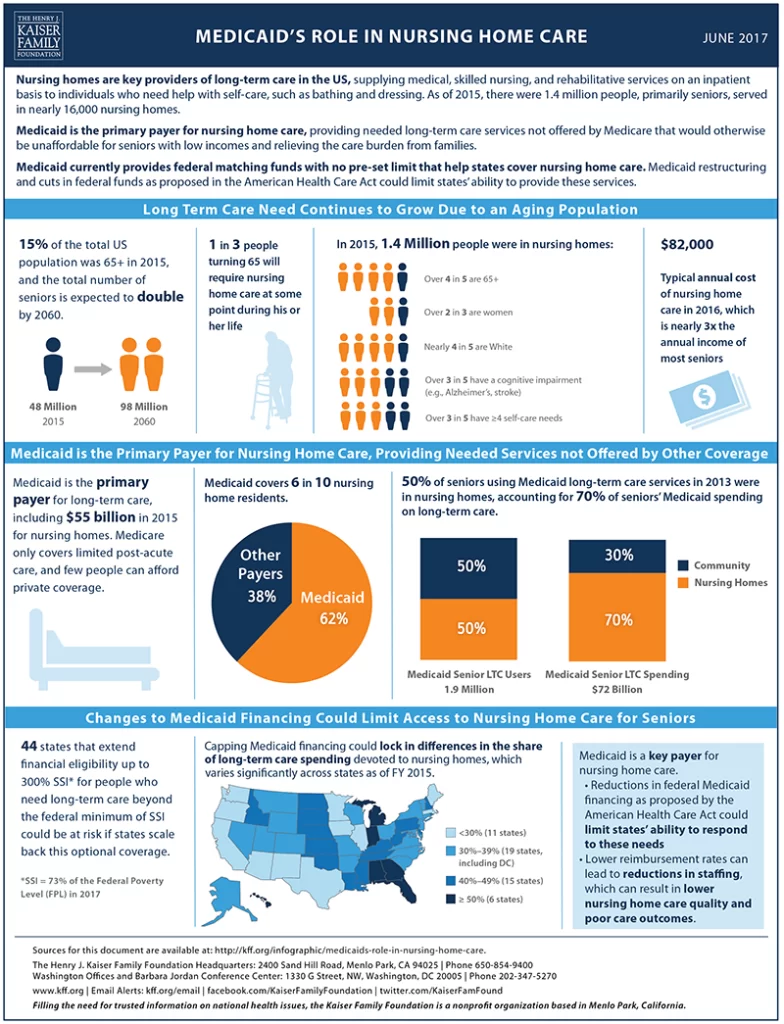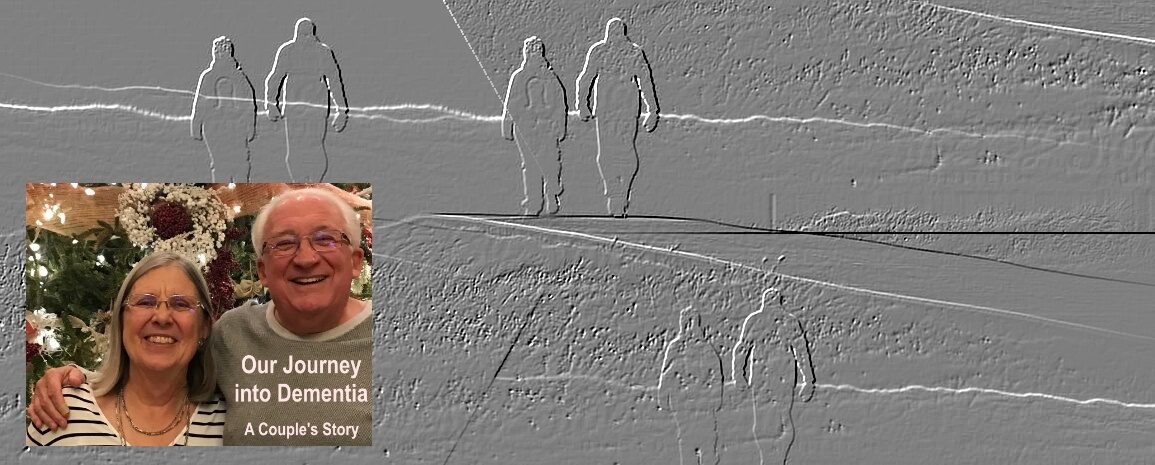You may not be on Medicaid but you could be impacted by cuts being made or planned…..
This is part of an ongoing series about our family’s experience with dementia. There is no order to it, just observations, reflections and, I hope, some guidance for others on this journey or who may someday begin it. It is not intended as any sort of financial, medical or psychiatric advice. Just one family’s experience…
IT NEVER WAS my intention to talk politics in this blog, but current invents make it impossible to ignore the fact the current chain-saw approach to Federal expenditures by Elon Musk and DOGE (Department of Government Efficiency) could imperil families who have loved ones dealing with dementia and other life-threatening conditions that require any sort of long-term care.
DOGE has targeted Medicaid, and the Republican House budget bill also has Medicaid in its crosshairs.
Why does this matter? It matters because American hospitals and nursing homes rely heavily on Medicaid to make it possible for them to treat people who cannot afford services. For example, 40 percent of all births in the United States are covered by Medicaid.
Even with Medicaid, hospitals and nursing homes do not recover all the costs associated with treating and housing those without sufficient funds to pay the going rate. For example, around 40 percent of nursing homes with Medicaid residents recover around 80 percent of their sunk costs. Fifty-two percent fall into the 80-100 percent recovery bracket. (Office of the Assistant Secretary for Planning and Evaluation)
How many people receive some form of Medicaid support? Would it surprise you know that figure is 80 million?
“These cuts would take health care away from people who need it most, including older adults, people with disabilities, and children who get their health insurance from Medicaid to support them in their homes and communities. No one with Medicaid is safe from these cuts.” – Medicare Rights Center.
If DOGE and the Republican Congress get there way “Hospitals will close, including in rural America and urban America and the heartland of America. Nursing homes will be shut down, and everyday Americans, children, seniors, those who are suffering with disabilities, will be hurt,” says House Democratic leader Hakeem Jeffries on New York.

So, why should you care if you are not involved with Medicare? It’s pretty simple. You could end up being involved with Medicare.
We were facing a crisis of epic proportions in this country when it comes to health care for Americans older than 65 prior to DOGE coming on the scene. DOGE means that crisis has escalated. More and more seniors are living longer and facing the prospect of some sort of long term care. Back in the beginning days of this blog I pointed out the following:
According to the National Council on Aging, 80 percent of older Americans would be unable to sustain the costs of long-term care. Worse, 20 percent of those have zero assets to draw on and would be thrown into the world of Medicaid where quality of care becomes less assured.
“It is unacceptable that nearly all older Americans are one crisis away from plunging into poverty after working their entire lives and often saving a nest egg that is then wiped out by the cost of care,” says Susan Silberman, a senior researcher with NCOA.
THE NEW YORK TIMES, in a major 2023 series, “Dying Broke,” on aging in America, reported:
- 10,000 Baby Boomers per day will turn 65 until 2030.
- The price tag for elder care will explode to half-a-trillion dollars a year.
- Dementia, now at 8 million victims per year, will continue to grow adding to its already top reason for care of long or indeterminate length in the nation.
- The U.S. already devotes a smaller share of its GDP to long-term care than any other wealthy, industrialized nation.
- Any sort of medical help for the elderly, in spite of medical improvements leading to longer lives has not changed to any degree since Medicare and Medicaid were enacted in 1965. (When, by the way, I was 19 years old).
- One major political party is already on record as saying it will cut Medicaid, the only option available to older people without assets if it controls the White House and Congress. (Note: Medicaid also involves state contributions and in many states those have been cut).
- A memory or nursing care stay can easily cost a family in excess of $100,000; nine of 10 people surveyed for the Times report said it would be “impossible or very difficult” for them to pay that much.
- Efforts to create some kind of Federal safety net beyond Medicaid have not made it out of committee. That includes an effort by President Joe Biden to include $150 billion in the Build Back Better Act for in-home and community care (not nursing homes!) It was cut from the bill.
- Burden of care still falls disproportionately on women with one study showing the median lost wages for women providing intensive care for a loved one was $24,500 over two years.
- While Medicaid, mentioned above, becomes the last resort for patients, and sometimes care givers, with depleted assets, requirements are complex, vary from state to state, often require a lawyer to navigate and even if someone qualifies, there can be waiting lists for care.
THE FACILITY MY , Connie, is in has a program to insure she is never kicked out, even if our money runs out. For many families facing more than $100,000 a year in care costs, that’s a distinct possibility. Our facility is Medicaid certified so it has a program that says if we run out of money she can stay, drawing on Medicaid and funds the facility raises through its development program.
If Medicaid to nursing homes is slashed, will the facility be able to continue that program? And, if it cannot, what happens to Connie? What happens to me if I am still living because remember, where a couple is involved, the healthy spouse still must support their own living costs.
If you have a loved one receiving in-home care or nursing home care for any reason, you are in the bull’s eye of these cuts. You are not immune. If nursing homes lose Medicaid, costs to other residents will go up. In some cases, these homes will close.
What happens then? Nothing good. We will return to the old days of trying to provide in-home care we are not trained to provide, or maybe physically and/or emotionally able to provide. We could even see a return to the days when black market care facilities, unlicensed, uninspected, existed.
So, sorry for bringing politics to bear but it’s unavoidable. Cancer, heart attack, other terminal conditions, dementia don’t care about wealth. Disease doesn’t care if you voted Blue or Red.
It’s time to contact your elected officials.
Rich Heiland, has been a reporter, editor, publisher/general manager at daily papers in Texas, Pennsylvania, Illinois, Ohio and New Hampshire. He was part of a Pulitzer Prize-winning team at the Xenia Daily (OH) Daily Gazette, a National Newspaper Association Columnist of the Year. Since 1995 he has operated an international consulting, public speaking and training business specializing in customer service, general management, leadership and staff development with major corporations, organizations, and government. Semi-retired, he and his wife live in West Chester, PA. He can be reached at [email protected].
